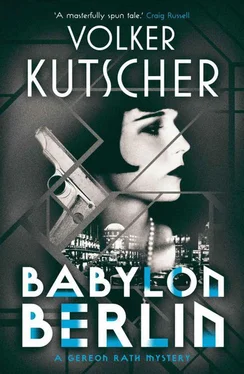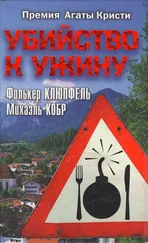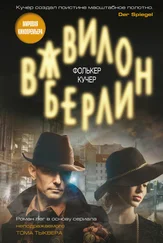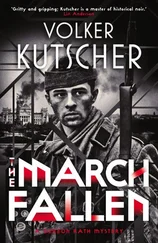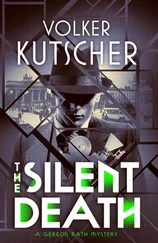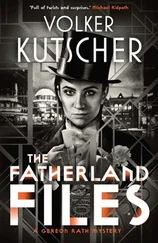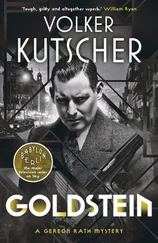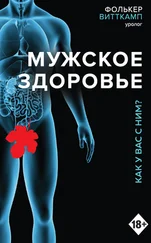Фолькер Кучер - Babylon Berlin
Здесь есть возможность читать онлайн «Фолькер Кучер - Babylon Berlin» весь текст электронной книги совершенно бесплатно (целиком полную версию без сокращений). В некоторых случаях можно слушать аудио, скачать через торрент в формате fb2 и присутствует краткое содержание. Город: Dingwall, Год выпуска: 2016, ISBN: 2016, Издательство: Sandstone Press, Жанр: Исторический детектив, на английском языке. Описание произведения, (предисловие) а так же отзывы посетителей доступны на портале библиотеки ЛибКат.
- Название:Babylon Berlin
- Автор:
- Издательство:Sandstone Press
- Жанр:
- Год:2016
- Город:Dingwall
- ISBN:978-1-910124-97-0
- Рейтинг книги:3 / 5. Голосов: 1
-
Избранное:Добавить в избранное
- Отзывы:
-
Ваша оценка:
- 60
- 1
- 2
- 3
- 4
- 5
Babylon Berlin: краткое содержание, описание и аннотация
Предлагаем к чтению аннотацию, описание, краткое содержание или предисловие (зависит от того, что написал сам автор книги «Babylon Berlin»). Если вы не нашли необходимую информацию о книге — напишите в комментариях, мы постараемся отыскать её.
Babylon Berlin — читать онлайн бесплатно полную книгу (весь текст) целиком
Ниже представлен текст книги, разбитый по страницам. Система сохранения места последней прочитанной страницы, позволяет с удобством читать онлайн бесплатно книгу «Babylon Berlin», без необходимости каждый раз заново искать на чём Вы остановились. Поставьте закладку, и сможете в любой момент перейти на страницу, на которой закончили чтение.
Интервал:
Закладка:
The doctor was even more gaunt than the butcher and gave the impression of being strict and ascetic. He listened attentively as Rath briefly outlined the situation, took his hat and coat, and reached for the bag. Finally he sent the receptionist home.
‘We’re closing. There’ll be no-one coming today anyway,’ he said. ‘No-one dares venture outside while the police are doing target practice.’
The sentence ought to have made Rath suspicious, but he didn’t think anything of it. He didn’t learn the truth about Dr Völcker until they had returned to the flat, Uncle having remained behind to comfort the grieving widower. Wolter was sitting beside the man, who appeared to have composed himself in the meantime, at the living room table.
‘Where did you dredge him up?’ Wolter asked.
The doctor greeted the widower briefly, offered his condolences and then disappeared onto the balcony.
‘Do you two know each other?’ Rath asked.
Wolter waited until the widower had joined the doctor on the balcony. ‘You’ve really landed us in it there,’ he began.
Soon Rath realised this was something of an understatement. Dr Peter Völcker was not only a doctor and head of the Neukölln public health department; he also had a seat and a vote on the local district council – as a member of the Communist Party.
In police circles, he was infamous, a troublemaker who enjoyed calling for inquiries and threatened legal action whenever police officers and communists clashed.
‘Shit!’ Rath commented.
‘Succinctly put,’ said Wolter. ‘Nothing we can do now though.’ He patted his colleague on the shoulder. ‘Come on, we shouldn’t leave the communist doctor alone for too long. Who knows what he’ll try and foist on us?’
When they stepped onto the balcony, the two women were lying exactly where they had been found. The doctor had obviously examined them already. He was now standing by one of the wooden privacy screens that flanked the balcony, fiddling around with the wood. The widower hunched over the corpse of his wife.
‘If you’re finished, Doctor, you ought to fill out the death certificates,’ Wolter said. ‘The corpses shouldn’t remain here any longer than is necessary. Have you recorded the death? In that case, don’t waste any more time here and get back to your practice. There are bound to be some proles waiting to have their chicken eyes removed.’
‘All in good time, my man,’ Völcker replied. ‘I’m still establishing the cause of death.’ He turned round and presented both police officers with a large, sharp projectile. ‘Here!’
‘What the hell is that supposed to be?’ Rath asked.
‘You of all people should know. A police bullet. Not the first victim your colleagues have on their conscience.’ There was something unbearably self-righteous about Völcker’s tone.
‘My dear doctor!’ Wolter was like a steam boiler whose safety valves had opened to release high pressure in a sharp hiss. ‘Perhaps you’re unclear about the traditional division of labour. It’s neither your job to secure evidence, nor to draw conclusions, and certainly not hasty ones!’ He snatched the projectile from the doctor’s hand. ‘Whether it’s a police bullet or not remains to be seen. We shall…’
‘Murderers!’ The widower had risen to his feet, his face no longer pale but red and distorted with rage. ‘Murderers!’ he cried again and hurled himself on Wolter. Rath pulled him back in an arm lock.
‘Calm yourself down,’ he said. At first the man tried to wriggle free, before growing quieter and finally beginning to sob. Rath gave him a consoling pat on the shoulder.
‘Do you see what you’ve done?’ Now Wolter was really yelling. Völcker winced inwardly.
‘I’m not the one who made this man a widower,’ replied the doctor.
‘Are you trying to suggest that I…’
‘Bruno!’ Rath feared he would soon have to hold Wolter back too. Uncle paused mid-sentence and turned towards him, looking as if he might go for the doctor’s throat at any moment. With a struggle he regained his composure.
‘My dear doctor,’ Wolter continued. ‘As a scientist you should really be approaching a task like this from an impartial standpoint. I’m not sure if you’re the right man for the job.’ He turned to Rath. ‘Call Dr Schwartz from the Charité hospital. He has more experience in this area.’
Rath left the two squabblers to their own devices. A short time later, he was standing in Wilhelm Prokot’s shop for a second time. The butcher gave him a broad grin as he showed him to the telephone.
‘Was the doctor able to help?’
Prokot had known exactly what he was doing when he pointed Rath in the direction of Dr Völcker. Rath would’ve liked to have slammed a fist into that grinning face but, instead, composed himself and asked to be put through to the Charité.
The black car could not have travelled faster if the two women in the zinc coffins at the back had still been alive. After they left the restricted area the driver put his foot down like a getaway car driver. Rath looked across at him.
‘Slow down,’ he said. ‘Two corpses are more than enough.’
The driver muttered and laid off the gas a little. He had started grumbling when he heard they were going to the morgue in the Charité. Dr Schwartz was otherwise engaged but had requested that the two dead women be brought to him. Wolter had stayed behind in the flat, while Rath had been obliged to travel in the mortuary car with Dr Völcker between him and the driver. The Red doctor had insisted, and Wolter had given his consent. Thus Uncle was rid of the troublemaker, and Rath was lumbered with him.
The co-driver had groaned when he heard how many people were accompanying the two corpses. ‘This isn’t a police van, it’s a mortuary car.’ Grumpily he had cleared his space, and was now sitting in the back between the coffins, cursing at each bend.
Although his eyes were open, Rath was scarcely aware of the world outside the car windows. He saw the traffic on Kottbusser Damm, saw the Friday hustle and bustle on Oranienstrasse, but it all seemed like a dream. Outside of Neukölln everything seemed normal again, but that normality was at the same time unreal. It hardly seemed credible that only a few kilometres away a state of emergency had been declared and shots were being fired, that people were dying. The image of the dead women had been burned into his brain. The younger of the two was only twenty-six years old, the older of the pair fifty. Their papers felt so heavy in the inside pocket of Rath’s coat it was as if they were printed on lead.
Since the mortuary car had set off from Hermannstrasse, he hadn’t exchanged a single word with Völcker. He observed the doctor’s gaunt figure out of the corner of his eye, sitting in a creased grey coat that was slightly too big for him. There was a tinge of grey stubble on his pointed chin, and his eyes were focused on the road ahead.
Rath finally broke the silence. ‘You’re a doctor,’ he asked, so suddenly that Dr Völcker gave a start, ‘so why did you become a communist?’
For the first time since they had left Neukölln, Völcker looked at him. ‘It doesn’t tally with your world view, does it?’
Rath was annoyed by the doctor’s self-righteous tone, and even more annoyed that Völcker was, in a way, correct. It always surprised him when academics called themselves communists. For Rath, communists grew out of the lumpenproletariat. People raised in an environment like that barely stood a chance. Either they became communists or they became criminals, or both. Criminals, communists – for many policemen they were one and the same. Didn’t communists also want to steal? To dispossess the middle classes using violent means? The Penal Code called that robbery; the Commune called it revolution.
Читать дальшеИнтервал:
Закладка:
Похожие книги на «Babylon Berlin»
Представляем Вашему вниманию похожие книги на «Babylon Berlin» списком для выбора. Мы отобрали схожую по названию и смыслу литературу в надежде предоставить читателям больше вариантов отыскать новые, интересные, ещё непрочитанные произведения.
Обсуждение, отзывы о книге «Babylon Berlin» и просто собственные мнения читателей. Оставьте ваши комментарии, напишите, что Вы думаете о произведении, его смысле или главных героях. Укажите что конкретно понравилось, а что нет, и почему Вы так считаете.
